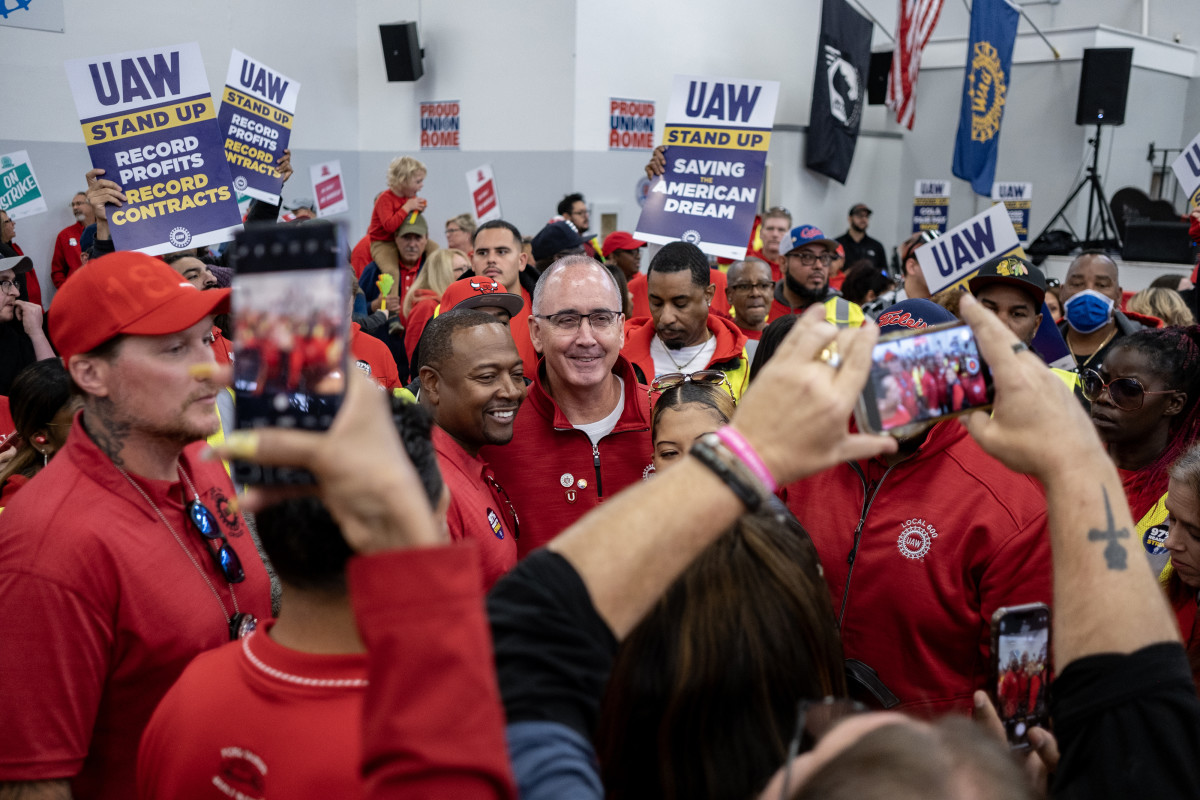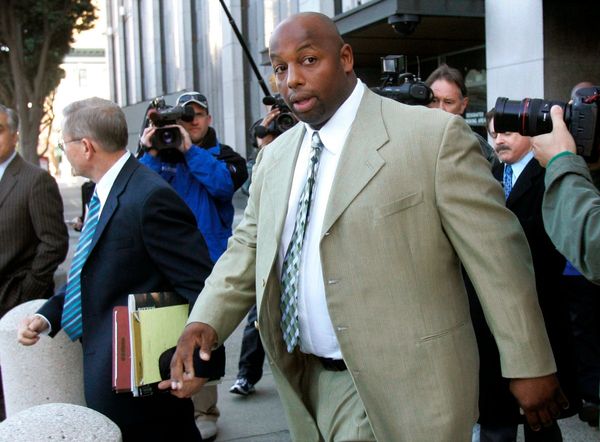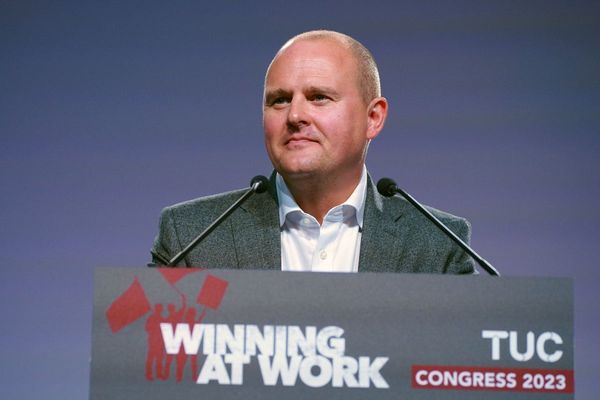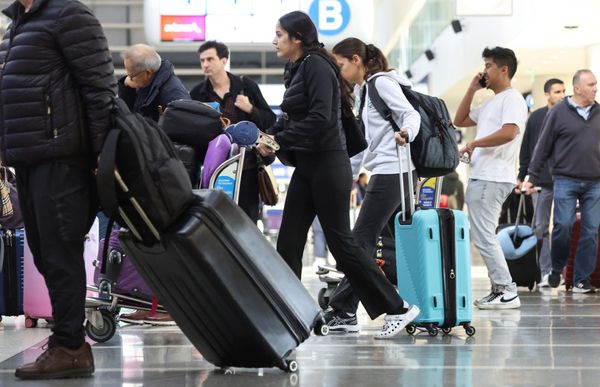
The United Auto Workers union, which has been on strike against three large car companies since Sept. 15 for a new contract that contains higher wages, has the backing of most Americans, according to a new CNN poll.
The poll, which was conducted for CNN by SSRS, found that 76% of adult Americans sympathize with the UAW workers who are striking against Detroit's Big Three: GM (GM) -), Ford (F) -) and Stellantis (STLA) -). And only 23% of the American public sympathize with the employers.
The survey also found that 66% of Americans believe that elected officials should stay out of labor disputes, with only 34% believing that they should get involved. This comes after President Joe Biden stopped in Detroit on Sept. 26 encouraging members of the strike to “stick with it” and that they deserve the “significant raise” they are asking for.
Related: Ford has harsh words for striking UAW workers
What jump-started the strike was the expiration of UAW’s contract in early September — 12,700 workers at that time staged a walkout in three factories in Michigan, Missouri and Ohio, which belonged to the Detroit’s Big Three. Currently, 34,000 UAW workers are striking across the country. A few of the union’s demands include: a 36% raise, a 32-hour work week for 40 hours of pay, traditional pensions, a guarantee of job security and better retirement health care.
The strike, which continues to gather more participants, has negatively impacted business in the auto industry. Suppliers who sell materials to auto plants that have workers on strike are facing the risk of going out of business.
While speaking to Fox News on Oct. 17, Marick Masters, a business professor at Wayne State University, said that suppliers are losing money. "There have been surveys done that have indicated that about a third of the suppliers in general are in some financial difficulty," he said.
Also, GM, Ford and Stellantis have laid off about 5,000 workers at plants across the nation as a response to the strike.
"While we are doing what we can to avoid layoffs, we have no choice but to reduce production of parts that would be destined for a plant that is on strike,” said Bryce Currie, vice president for Americas manufacturing and labor affairs at Ford, in a statement last week.







